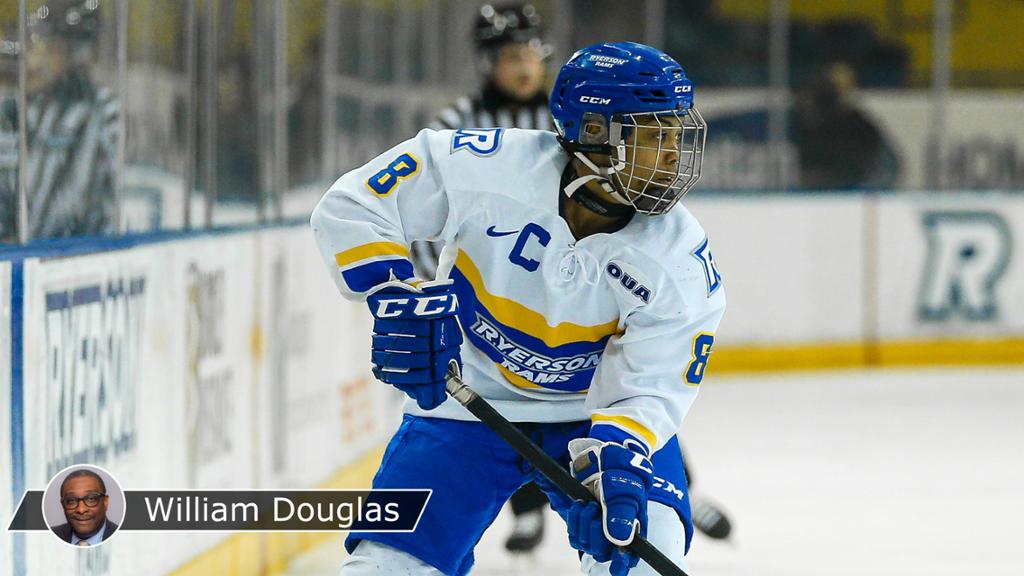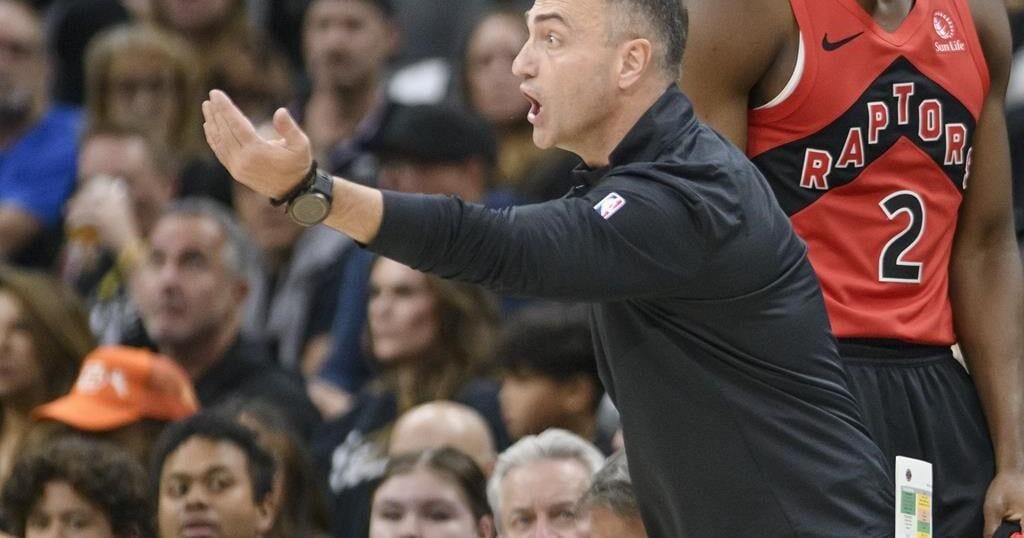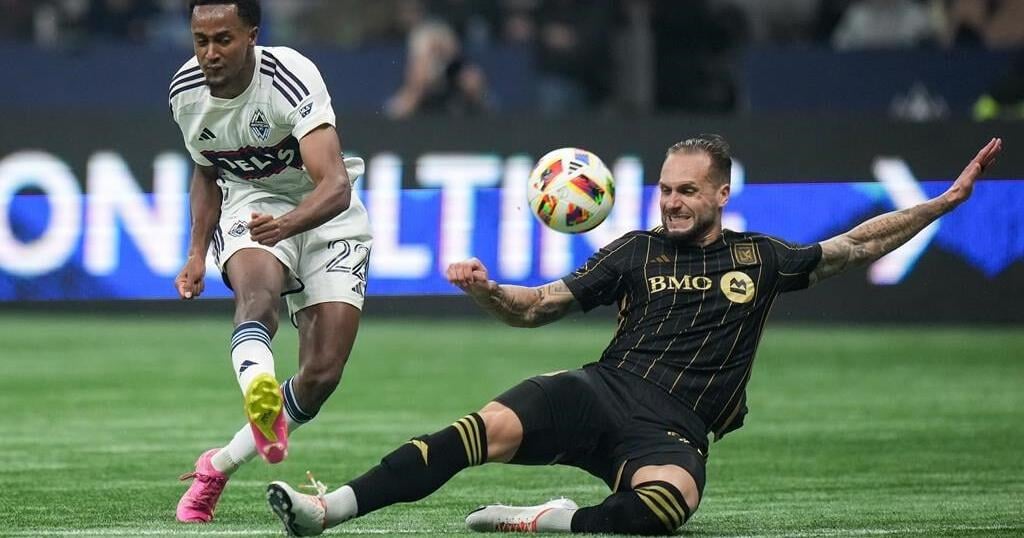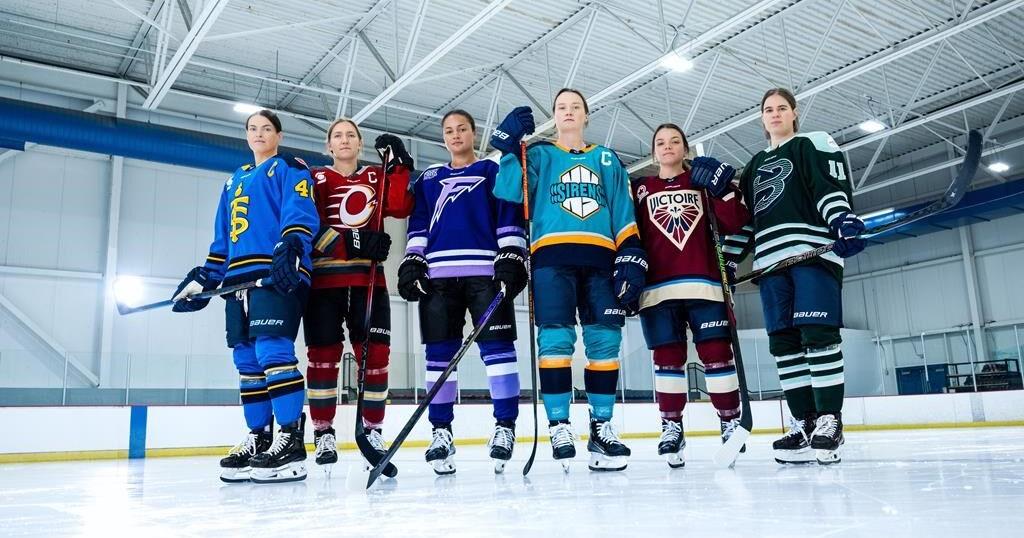Kryshanda Green already made one comeback. Her grandfather persuaded her to make another.
Green, a forward for Ryerson University in Toronto, was considering not playing this season, thinking she was too old at 26 for Canadian college hockey.
“I was just a little concerned about whether I would be able to keep up, what my impact was going to be, the dynamic in the dressing room,” she said. “My grandad spoke to me and made me see the light a little bit better.”
“Grandad” is Bill Riley, who was the third black player in the NHL behind fellow Washington Capitals teammate Mike Marson in 1974 and Willie O’Ree, who debuted for the Boston Bruins in 1958.
Riley’s message to his granddaughter: Get a grip.
“I said, ‘Listen, Kryshanda, Pop-Pop was in his 30s when Steve Larmer, Steve Ludzik and all those guys came in as 19-year-olds, played for us in the American Hockey League [for the New Brunswick Hawks], and looked up to me in the highest kind of way because of the leadership skills I displayed for them,'” he said, “I said, ‘These girls that are coming in, they will look up to you for eternity for all the things that you will help them with, so don’t think you’re too old to play.'”
Green took her grandad’s advice, and she’s glad she did. She’s captain of the Ryerson team this season and she’ll end her collegiate career as the university’s all-time leader in goals and points.
She has 74 points (33 goals, 41 assists) in 85 games. Green will also finish among the university’s leaders in assists, game-winning goals and power-play goals.
“Pretty proud, makes the hair stand up on the back of my neck,” Riley said. “I’m over the moon with what’s going on with her life right now and her career.”
Green’s success didn’t come easy. She quit hockey after playing her freshman season in 2012-13 at Western University in London, Ontario, where she finished with 21 points (nine goals, 13 assists) in 26 games and earned Ontario Athletics All-Rookie Team honors. But her on-ice performance didn’t carry over to the classroom. Hitting the books wasn’t a priority, and Green left the university after that season, breaking her 69-year-old grandfather’s heart.
“He was flabbergasted. He couldn’t believe it,” she said. “He wasn’t too happy. “Every time we spoke to each other he said, ‘You gotta get back to the game, you gotta get back to the game.'”
Green didn’t play hockey for two years. She filled the void by collaborating with Toronto-area hip-hop artists and becoming the rapper known as Krash. She performed around town and even released a video and extended play recording titled “Bankrupt For Quality” four years ago. But as much as she tried to deny it, Green missed hockey and wanted to give college another try.
“I think it’s the [most fun] game in the world, and I missed all the bonds, the connections I made and just playing the game,” she said. “It was very hard for me to accept the way I left the game. What made my decision in wanting to go back to school is an opportunity to just try to finish the story in a different way.”
Ryerson coach Lisa Haley remembered seeing Green play junior hockey and contacted her about a second chance. Green enrolled at Ryerson as a redshirt transfer in 2015. She didn’t play a single game that season so she could focus on her studies.
“I think both Krash and I would agree that we were optimistic that this could be the outcome, but we were both realistic that this was a risk,” said Haley, who was an assistant for Canada at the 2014 Winter Olympics. “She’s coming back to school much older than a lot of her teammates. It didn’t go very well for her the first time with the student-athlete life. It was definitely a roll of the dice on both ends.”
It was a roll Green wanted to take, especially when she learned that she could wear the No. 8, the number Riley wore with the Capitals from 1976-79, decades before Alex Ovechkin earned the nickname “The Great Eight.”
“When I came back, I was thinking going back the number I had at Western [97] but I suddenly changed my mind because I was just looking at a picture of my grandfather one day at my mom’s place and it struck a chord with me,” she said. “My grandfather is like a huge influence on me, he’s very inspiring. I know he dealt with a lot of adversity. His situation is something that I can be very proud of.”
Riley, who had 61 points (31 goals, 30 assists) in 139 NHL games for the Capitals and Winnipeg Jets, jokes that he left a lot of goals in that Washington jersey for Ovechkin.
He said he was choked up about Green wearing his number but also issued a grandfatherly challenge to her.
“‘He said, ‘You better earn that number. You better do something with that number if you’re going to wear it,'” Green said.
She responded by putting up 20 points (10 goals, 10 assists) in 2016-17 and finishing 10th in the OUA in scoring. She had six multipoint games and led Ryerson with three power-play goals that season.
Green was an OUA Second-Team All-Star last season after finishing with 23 points (10 goals, 13 assists) in 24 games. She was also a finalist for Ryerson’s H.H. Kerr Female Athlete of the Year award.
“I’ve learned that I’m resilient and that I’m not a quitter, and that’s important to me,” Green said. “That no-quit attitude that’s the biggest thing for me because there are a lot of challenges in life in every area and I want to make sure that I’m not going to quit in those moments.”
Green hasn’t figured out what she’s going to do when she completes her studies at Ryerson. She has already earned her undergraduate degree in politics and governance from the university and is working toward a graduate certificate in criminal justice.
Whether she continues in hockey as a professional player or coach or puts her degrees to use, Haley is certain that Green will succeed in whatever she chooses.
“I think she’s a tremendous success story of someone who needed a second chance, was given it and has made the most of it,” Haley said. “If it’s being a rapper or being the next prime minister of Canada, I think she’s capable of either one of those things.”


























